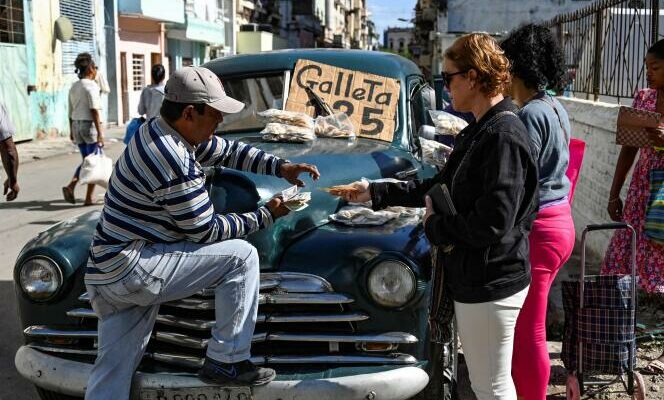“The island is experiencing a war economy scenario. » This is how the Cuban Prime Minister, Manuel Marrero, justified, Wednesday December 20, during a speech before the National Assembly, one of the most important budgetary restriction plans in recent years, that certain sectors of the opposition have described as “neoliberal”.
The Prime Minister, after attributing the current situation in the country, as usual, to the embargo imposed by Washington for more than sixty years and to international crises, admitted to parliamentarians that the government “could have done a lot more”. The authorities have recognized in recent days that the growth forecast for 2023 had been revised downwards (between − 1% and − 2% instead of the planned increase of 3%).
Considering that it is no longer possible to “continue to waste”, Mr. Marrero announced a series of measures intended to reduce public spending, including an increase in the prices of certain public services, such as electricity, gas, water or passenger transport – sometimes of the order of 25% –, as well as the price of gasoline. “In what other country can you get 9 liters of gasoline for a dollar? We must put an end to this luxury”he asserted, while the average salary on the island does not exceed 4,000 pesos, the equivalent of 15 dollars (approximately 13 euros).
For “a fairer and more efficient scheme”
He also suggested that the number of civil servants could be “revised” and announced a devaluation of the peso and a modification of the conditions of allocation of basic necessities at low prices through the “supply book” (the “libreta”).
This libreta was established in 1963, after the imposition of an embargo on the island by the United States, with the aim of rationing food. All Cubans, regardless of income, received chicken, red meat, oil, butter, condensed milk, coffee, and other basic necessities every month at prices largely subsidized by the State. The notebook still exists, but the list of products distributed has been reduced over time – and shortages – and it can only feed a family for around ten days per month.
“It is not fair that those who have much should receive the same as those who have very little, explained the Prime Minister. Today we subsidize an old retiree and the owner of a large private company who has a lot of money in the same way. »
You have 65% of this article left to read. The rest is reserved for subscribers.
